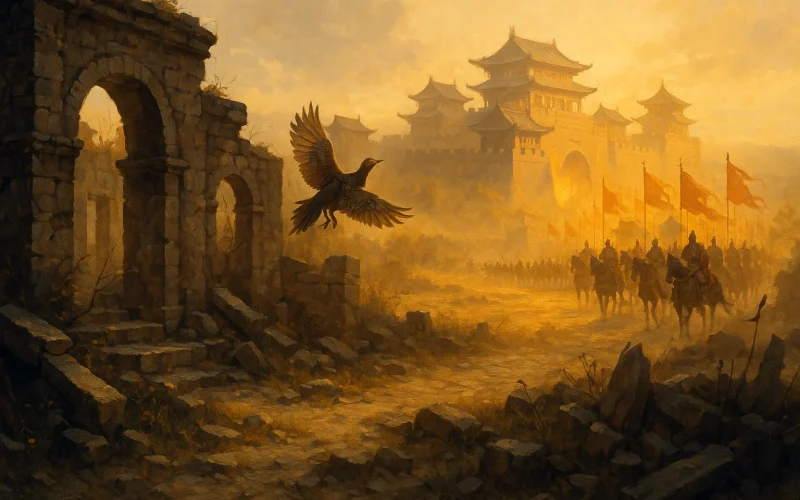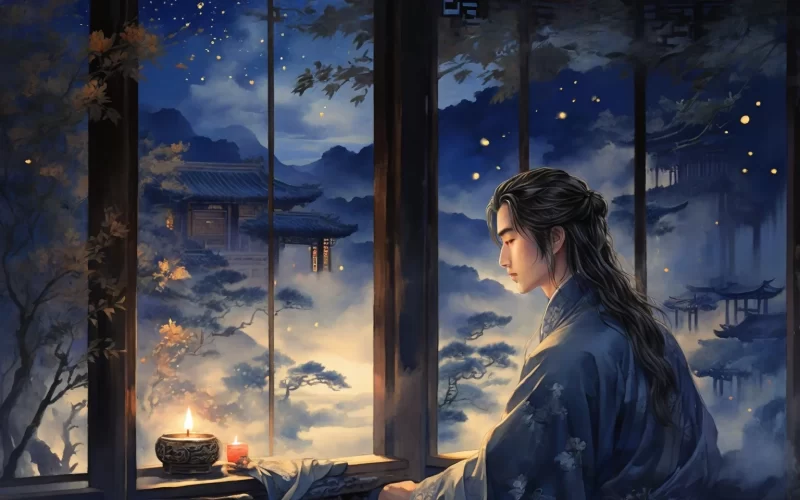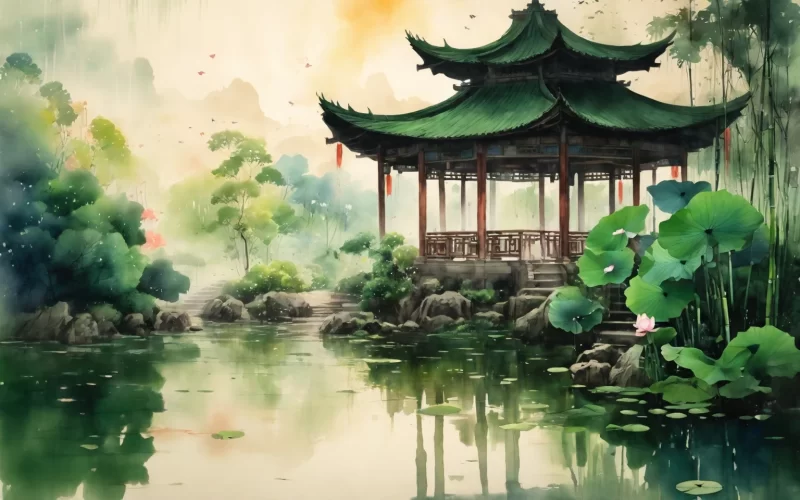The King of Yue returned, having destroyed the foe;
His loyal men came home, with silken dress aglow.
His palace thronged with flower-like ladies fair;
Now we see but a flock of partridges flying there.
Original Poem:
「越中览古」
李白
越王句践破吴归,义士还乡尽锦衣。
宫女如花满春殿,只今惟有鹧鸪飞。
Interpretation:
This poem is a work of historical reflection. By depicting the triumphant return of King Goujian of Yue after defeating the State of Wu during the Spring and Autumn period and the subsequent desolation of his kingdom, the poet expresses a deep contemplation on the rise and fall of history. King Goujian, renowned for his perseverance symbolized by the phrase "sleeping on brushwood and tasting gall," ultimately conquered Wu but failed to sustain Yue's prosperity, leaving behind a profound historical lesson.
First Couplet: “越王句践破吴归,义士还乡尽锦衣。”
(King Goujian of Yue returned triumphant after defeating Wu, with warriors clad in splendid garments, honored as heroes.)
This couplet describes the victorious scene of King Goujian's return after defeating Wu. The six thousand warriors, adorned in fine attire, symbolize the restoration of Yue's honor after years of humiliation. By focusing on the key moment of "returning after defeating Wu," the poet vividly conveys the grandeur and celebratory atmosphere of victory.
Second Couplet: “宫女如花满春殿,只今惟有鹧鸪飞。”
(In the past, palace maidens bloomed like flowers, filling the halls, but now only partridges fly through the desolate ruins.)
This couplet uses stark contrast to highlight the impermanence of history. Yue's former opulence and indulgence have faded into the present desolation, with partridges symbolizing the disappearance of past glories. With just a few lines, the poet sketches the entire arc of the kingdom’s rise and fall, leaving a profound impression.
Writing Characteristics:
- Contrast: The poem juxtaposes prosperity with desolation, revealing the transient nature of historical glory and evoking powerful emotions.
- Cinematic Depiction: The poet captures two vivid scenes—the triumphant return and the desolation of the palace—encapsulating the rise and fall of Yue's history with concise yet profound imagery.
- Subtle Moral: Rather than directly addressing the causes of Yue's decline, the poem uses alternating scenes of prosperity and ruin to prompt readers to reflect on the lessons of history.
- Refined and Elegant Language: The vivid imagery of "splendid garments," "like flowers," and "partridges" enhances the emotional resonance and visual impact of the poem.
Overall Analysis:
The poem begins with a grand depiction of King Goujian’s triumphant return, vividly portraying the glory and pride of victory. However, this radiant success was not sustained. The poet quickly shifts to the desolation of Yue’s former capital, with partridges flying through the ruins symbolizing the downfall of past splendor, expressing deep lament over historical impermanence.
Through the striking contrast of these two scenes, the poem not only recounts Yue’s rise and fall but also conveys the principle that indulgence in luxury inevitably leads to decline. Though the poet does not state it outright, his insight into the cycles of history and the impermanence of human affairs is evident, leaving a lasting impact on the reader.
Insights:
Using the history of King Goujian as a mirror, the poem reminds future generations to cherish the fruits of victory and avoid becoming lost in material prosperity. The lessons of history warn us that maintaining prosperity requires vigilance and a spirit of perseverance. Only by remaining steadfast can one avoid the fate of decline after reaching great heights. This poem serves as a powerful warning against repeating the mistakes that led to the fall of Yue.
Poem translator:
Xu Yuan-chong(许渊冲)
About the poet

Li Bai (李白), 701 - 762 A.D., whose ancestral home was in Gansu, was preceded by Li Guang, a general of the Han Dynasty. Tang poetry is one of the brightest constellations in the history of Chinese literature, and one of the brightest stars is Li Bai.











